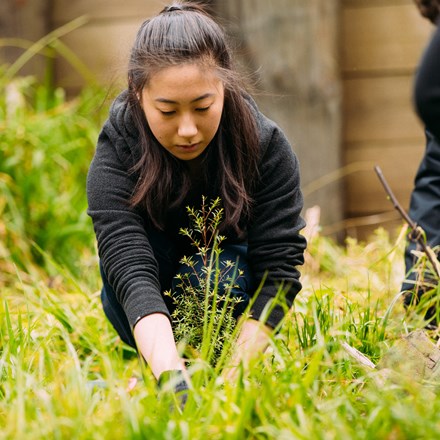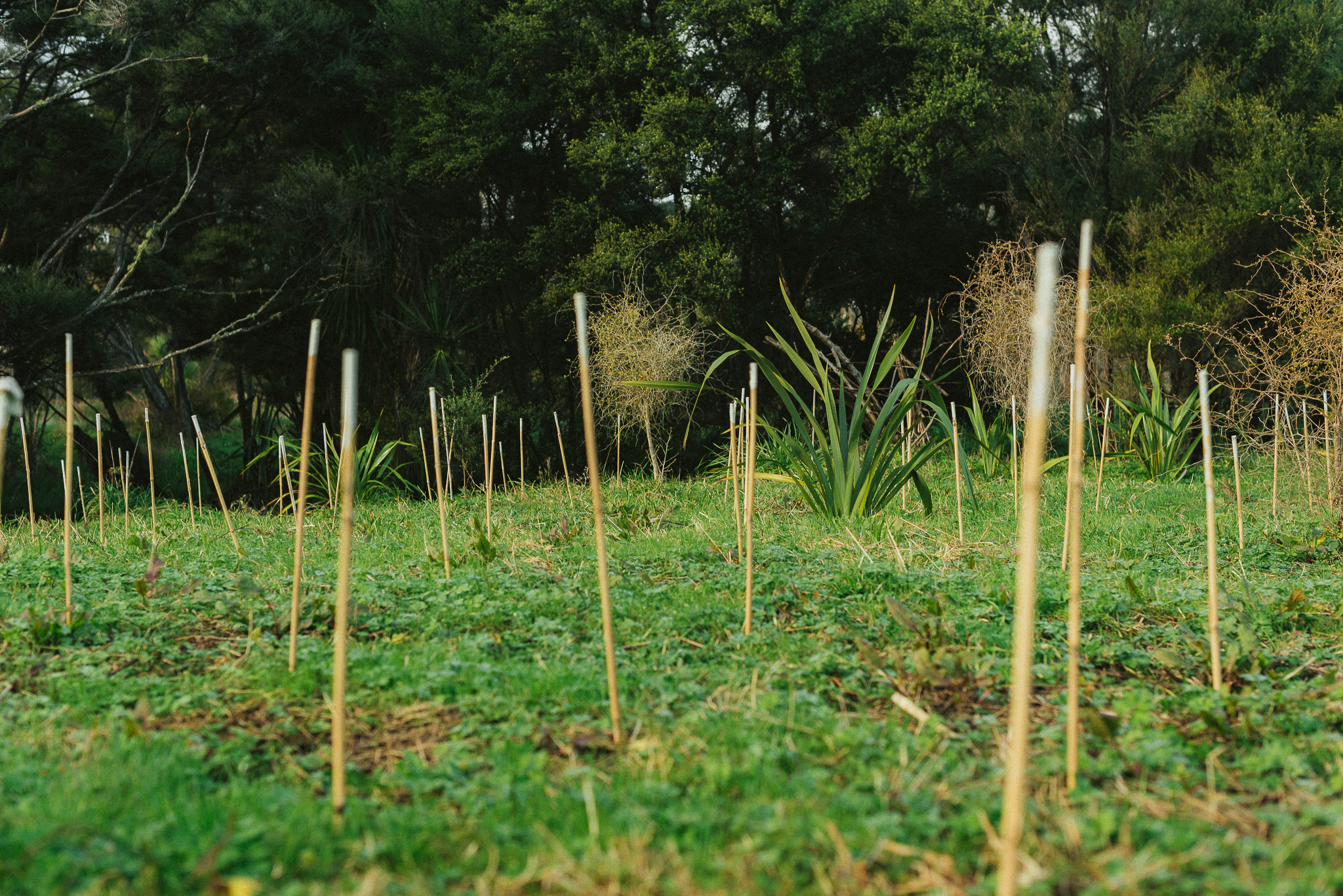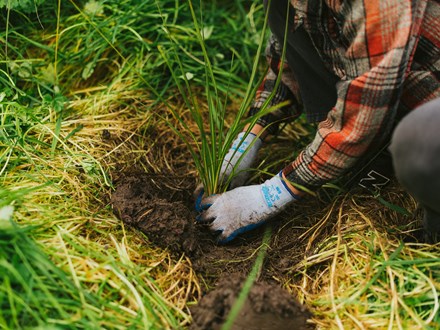
When to plant?
Planting occurs May through September. The peak-planting season is during the winter months so that seedlings get plenty of water and have time to establish roots before the dry season. In cold areas with heavy frosts or snow, plant in the shoulder seasons. In very wet planting sites, you can extend the planting season.
Tips for planting your site
- Not sure what to plant? Go back to Step 1 Create a Planting Plan.
- Water your plants in the morning before planting.
- Refer to your planting plan. Lay out your plants in their intended position, considering wet and dry zones. Randomise your plants so you don’t have large areas with only one type.
- Space your plants to account for how large they will grow. About one metre apart usually does the trick. Grasses/carexes can be closer together. More densely planted areas can reduce ongoing maintenance costs.
Quality over quantity
- Be gentle when taking your seedlings out of their pots. Try to not to break any of their roots.
- Firmly press down the soil around your plants to keep their roots from drying out, and to stop pukekos from pulling them up.
- Staking your plants will help you find your seedlings after you’ve planted them!
- Use plant guards to protect your seedlings from browsing by rabbits, deer, goats, pukekos and feral pigs.
- If possible, mulch around your new seedlings to help retain moisture and reduce weed growth.

Health and Safety is key
Take steps to ensure the Health and Safety of you and your planting team. Ensure you have the correct equipment, such as gloves, long-sleeves and a hat. Be aware of your surroundings when planting. Distance yourself from the next person. Take care using equipment such as spades and secateurs and around waterways. Be aware of potential hazards that could result in slips/trips/falls.
Trees that Count's video planting guide
More resources to check out
- For another great video on planting, see DairyNZ's Three steps to make riparian planting a success.
- Canopy provides great tips and info in this general guide for planting.
Consider a sustainable option
FutureEcology have created environmentally friendly plant guards. Emguards are biodegradable and made from recycled pulp. They stop plastic debris from entering waterways.

